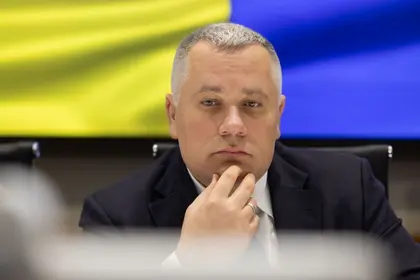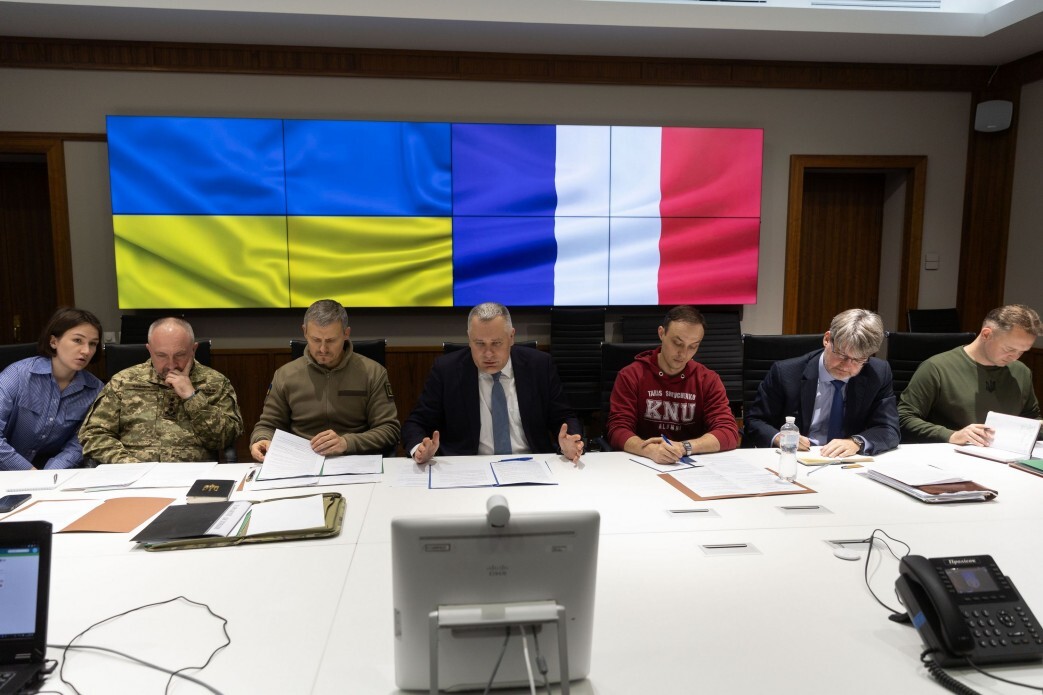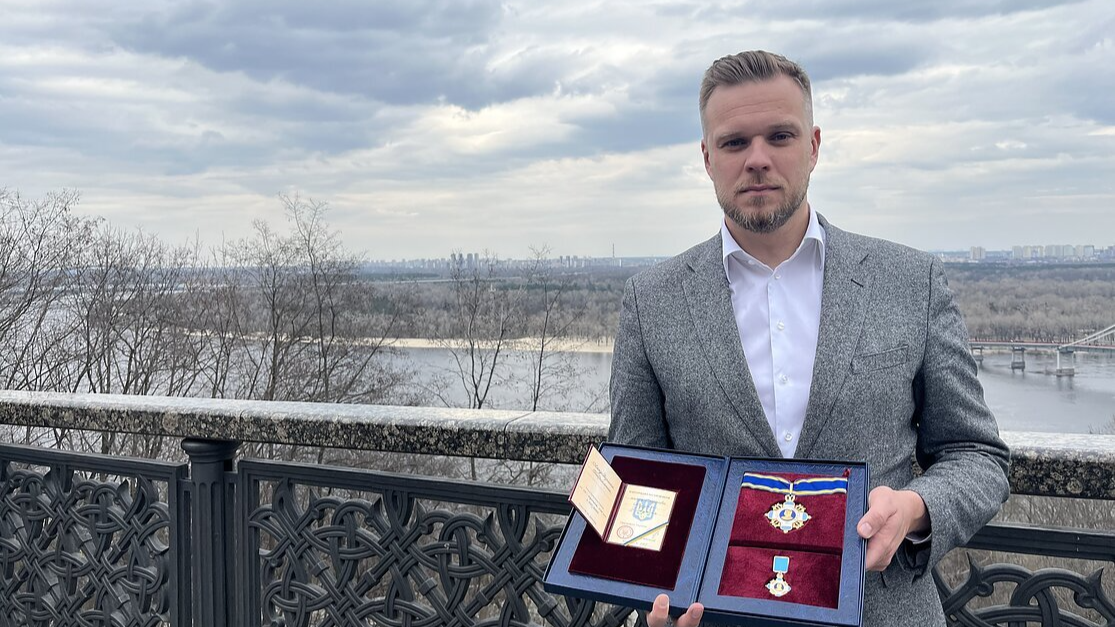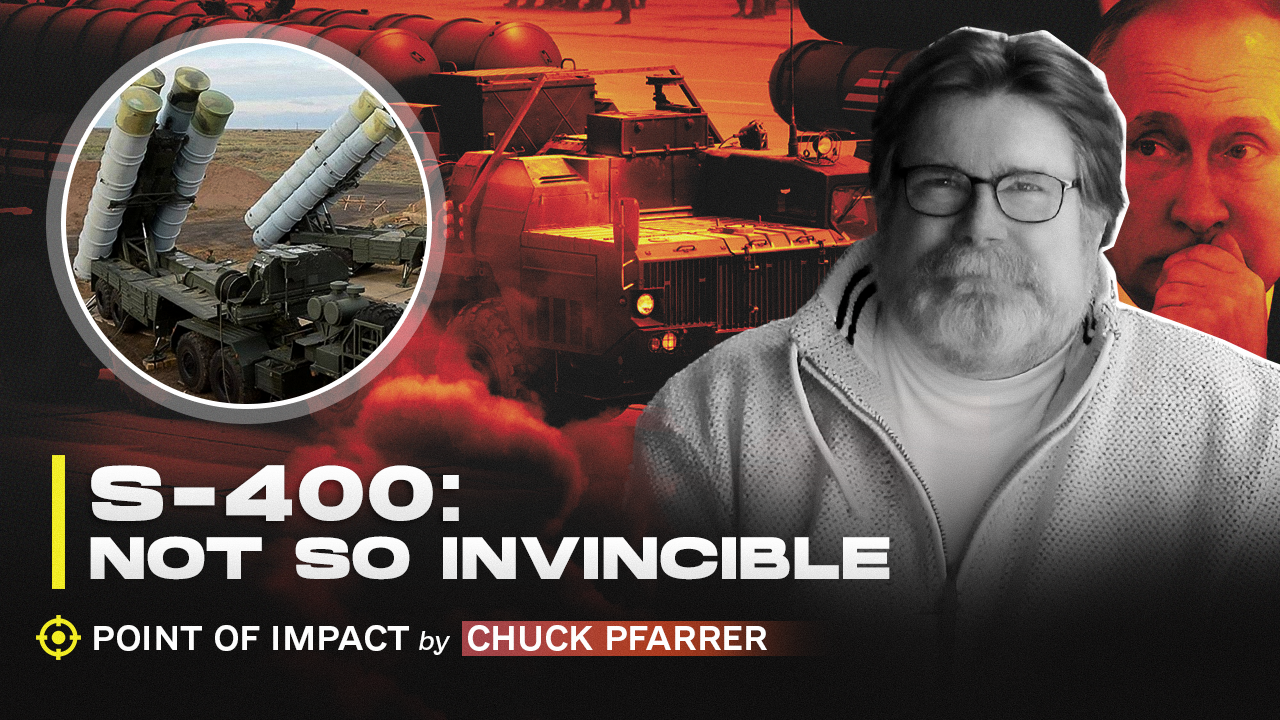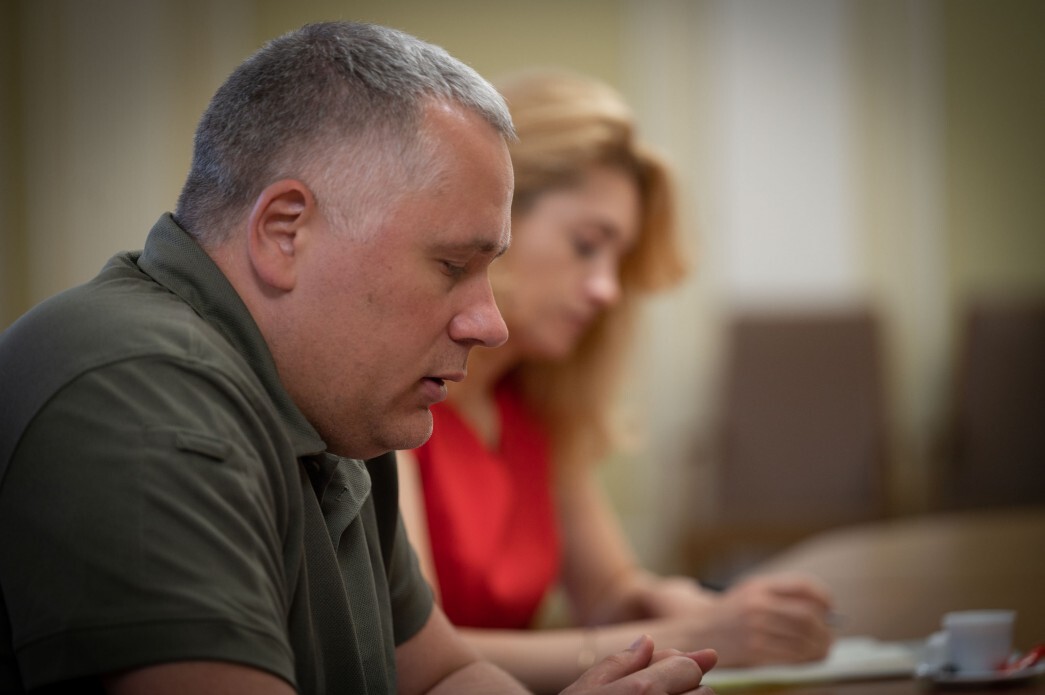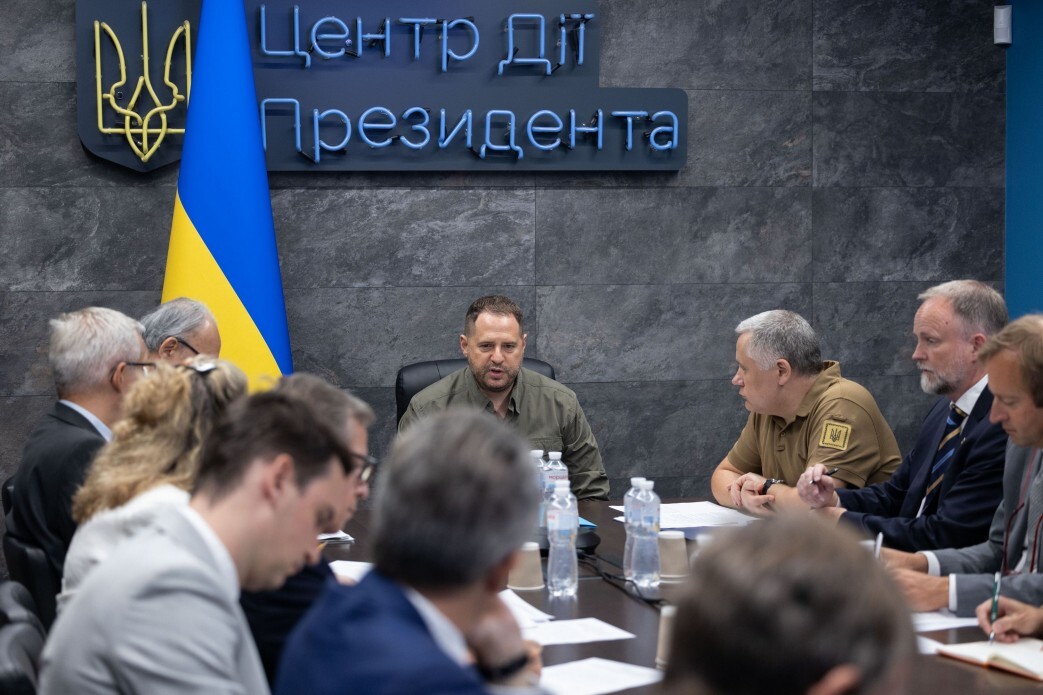In an interview with Kyiv Post, the Deputy Head for Foreign Policy in President Zelensky’s office talked about this week’s upcoming summit in Malta on the Ukrainian 10-point Peace Formula and the involvement of over 80 countries supporting the initiative.
On the eve of the third meeting at the level of security and political advisers of Ukraine’s partner countries, which will take place in Malta on Oct. 28-29, Kyiv Post met with Ihor Zhovkva, the Deputy Head of the Office of the President responsible for foreign policy, and talked about the Peace Formula and this week’s upcoming summit.
JOIN US ON TELEGRAM
Follow our coverage of the war on the @Kyivpost_official.
Zhovkva said that active preparation for the final meeting before the summit was ongoing. More than 50 participants will gather in Malta to finalize the formulation of the 10 points of President Volodymyr Zelensky’s Peace Formula, as well as to agree on the date and place of the Global Peace Summit, which will launch the process of its implementation.
Representatives of more than 80 countries have been participating in the “fieldwork” on the Peace Formula. After the initial meeting in Jeddah, they’ve met nine times in Kyiv under the leadership of Head of the Office of the President Andriy Yermak. They have presented plans for the implementation of the Peace Formula points, which should be approved in Malta.
The Peace Formula is the Ukrainian plan that takes into account the collective contribution of all 80 interested countries, says Ihor Zhovkva.
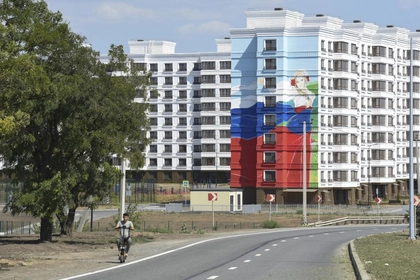
Moscow Imposes Russian Car Insurance in Occupied Ukraine by 2025
He confirmed that at the third meeting of national security advisers, we should expect “newcomers” who will join the collective pressure on the aggressor country and act as guarantors of the legal force of the Peace Formula.
Zhovkva explained in an exclusive interview with Kyiv Post how the Ukrainian Peace Formula takes on practical implementation more than a year after it was presented by President Zelensky.
In a telephone conversation with Biden, Zelensky announced that the third meeting regarding the Ukrainian Peace Formula would take place in Malta at the end of the month. What can you tell us about this event so far?
This will be the third meeting at the level of national security advisers and the leadership of the Ministry of Foreign Affairs. It’s expected to bring certain practical results.
First, we want to sum up the accomplishments of the working groups at this meeting. According to the ten points of the Peace Formula, ten ad hoc groups were created, and they worked at the level of ambassadors in Kyiv. Nine meetings have already been held. After the meeting in Jeddah, Andriy Yermak convened them almost every week... There were representatives of almost 80 countries at the last meeting, which centered on the seventh point – Russia’s responsibility for the crime of aggression, and its financial responsibility. Each such group has a corresponding plan on how to implement this point.
“It is in Malta that we want to approve these work plans at the level of national security advisers, as well as the final wording of all ten points of the Peace Formula. One of our tasks is to determine the date and place of the Global Peace Summit. Such a summit should be held as soon as possible.”
How many participants in the Maltese meeting does the Ukrainian side expect?
We think that compared to Copenhagen and Jeddah, when there were 15 countries in Copenhagen and 43 in Jeddah, there will be more than 50 countries. We can talk about this based on both the number of countries working at the level of ad hoc groups and the number of contacts at the level of the President's Office.
I’m talking about physical presence. However, there are logistic issues... Imagine what it is like to fly, for example, from Brazil to Malta. However, we had the experience of connecting online back in Jeddah. That is, online participation is allowed.
How has the geography of participants expanded since the meeting in Jeddah?
I am in constant contact with diplomatic advisers. These are not only European countries or countries of the North Atlantic area. These are the countries of Africa, Asia, and Latin America... That is, we do not forget the importance of greater involvement of the countries of the Global South.
I think that representatives of those states and institutions that were not present in Jeddah will also attend the meeting in Malta. I’m not talking only about certain international organizations, but about representatives of quasi-states... We’ll see, we’re working on it.
In recent days, the president of Ukraine, communicating with the leaders of the countries, in particular US President Joe Biden, President of France Emmanuel Macron, German Chancellor Olaf Scholz, the President of the Republic of South Africa, the Prime Minister of Norway, the President of Turkey, the Emir of Qatar, asked that their national security advisors be present in Malta.
This is important because when they return from Malta they will report to their leaders about what happened, and they will already make decisions about the Global Peace Summit.
"Perhaps soon we will have a decision on holding the Global Peace Summit."
Why is there such secrecy regarding the participants in the third meeting, especially the "newcomers"?
From Asia, there will be all the countries that participated in the previous meetings. These are representatives of India, Japan, and Indonesia.
I’m sorry, but I won’t name the new countries. Let it be a surprise for our enemy because as soon as some country receives an invitation Russia expresses strong opposition. The ambassador of this country is summoned to the Kremlin, they strongly advise them against going to the meeting of national security advisors... So, let’s not make the job of the aggressor easier.
What will be the practical significance of holding the Global Peace Summit and when will the Peace Formula become a reality?
It is the inaugural peace summit that will begin the process of implementing the ten points of the Peace Formula. There is a plan for each point, which will be approved first by the advisers, and then by the leaders at the summit.
"After the summit, events will begin on specific points of the formula. These will no longer be summits at the level of leaders, but ministerial or expert meetings."
Next month after the summit, we can start, for example, Global Food Security meetings. There are already leading countries, such as Turkey, ready to host them. We can continue the meetings, for example, on nuclear security, exchange of prisoners. We want the countries of the Global South to be present as well.
Russia’s war against Ukraine is still a war in Europe, which concerns our neighbors more. What is the interest of more distant countries in connecting to work in such a platform?
All countries of the world feel the consequences of Russian aggression. For example, Zelensky attended the Summit of the League of Arab States in Jeddah in May. In his speech to 22 participants, he talked about Russian aggression in Ukraine and the situation on the battlefield.
Then the Arab leaders spoke, and each of them stated that their country felt the consequences of Russian aggression. Somewhere fuel prices rose significantly, somewhere food prices grew, somewhere there is a lack of Ukrainian grain because Russia blocked the three largest Ukrainian ports on the Black Sea, and now the amount of grain is less than it was before the [full-scale] war.
Yes, they [the Russians – ed.] launched this initiative [the Black Sea Grain Initiative – ed.] for a year. Ukraine managed to export 32 million tons of grain, and then the Russians terminated it. Now we have alternative routes, we continue exports, but they are significantly smaller, and particularly African countries feel this shortage.
Another example is President of the Republic of South Africa Cyril Ramaphosa, who was in Kyiv and talked with our president. Then he visited Moscow and attended the International Economic Forum in St. Petersburg, where Putin offered him a handout in the form of one million tonnes of grain for free.
He replied, “No, Mr. Putin, I don't want your million tons, I want the restoration of the Grain from Ukraine initiative.” It’s also about the Peace Formula, it’s the second point of Global Food Security.
Another one is Global Environmental Protection, i.e., environmental consequences that not only Ukraine and not only our region feel.
Similarly, violation of the UN Charter is a global problem for all countries and, above all, for the founding countries of the UN.
Regarding the fifth point of the Peace Formula, for example, the representative of China says that China stands for the integrity of all states, and Ukraine in particular.
Look, there are practically no alternatives to the Peace Formula. Earlier President Ramaphosa used to talk about his proposals, but after his national security adviser attended our events, he no longer talks about it. There are no alternative plans from Brazil... Yes, China is still talking about some of its plans, but the Chinese representative was in Jeddah and clearly stated, “We need the next meeting of a similar format.”
You mentioned and the president said that individual countries could have their own opinion on certain points of the Peace Formula. To what extent is our government ready to discuss and listen to the advice of partners on certain points?
Indeed, we can discuss the wording. That is, the number and essence of the points will not change, but the wording can be adjusted considering the positions of other countries. We do not reject any rational suggestions.
For example, China in its peace plan says that one of the principles should be territorial integrity and sovereignty. This directly coincides with the fifth point of our Peace Formula. China says that no nuclear state in the world has the right to threaten a non-nuclear state, including Ukraine, with the use of nuclear weapons. This coincides with our first point. So, we consider all reasonable suggestions.
It is at the meeting in Malta that we have to refine the wording of each point, as well as action plans for each point of the Peace Formula, taking into account all the positions gathered in working groups from 80 countries.
"This is not only a Ukrainian brainchild, but a collective creativity. That is, it is the Ukrainian plan, but it takes into account the positions of all 80 interested countries. Therefore, no one will say that Ukraine imposed something on the world."
All participating countries agree with the general idea of the Ukrainian Peace Formula, and no one says that it is not needed: neither Brazil, nor India, nor China, nor South Africa, nor Saudi Arabia.
Offers came and continue to come. There is still time before the meeting, so we will take everything into account and accept the agreed upon option. Then together we will implement all the nine points of the formula and pass to the tenth one about fixing the results of the war, drawing up the corresponding document.
"Russia may ‘appear’ at the stage of the tenth point. Until that moment, Russia must be deprived of all instruments of aggression, in particular, in the field of food safety, ecology, violation of the UN Charter, and so on each of the nine points."
What does the implementation mean? That is, apart from the declaration of correct values and ideas, what legal force will the Peace Formula have and how can partners of Ukraine help in its implementation?
"They can help with collective pressure on Russia. There are countries to which Russia listens. These countries also participate in the meetings on the Peace Formula."
I will give an example of efforts made to withdraw Russian troops from the Zaporizhzhia nuclear power plant, the largest nuclear power plant in Europe and the third largest in the world. No country in the world has a nuclear power plant that is controlled by the armed forces of another country. China, the United States, Great Britain, and Japan support this position.
If all the countries participating in the development of the Peace Formula approve this wording and start applying pressure, then the aggressor will have no choice but to withdraw its troops from there.
You can also highlight the text and press Ctrl + Enter


